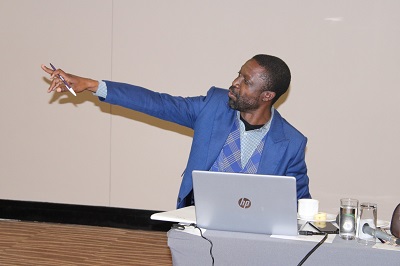By T’soloane Mohlomi
MASERU – Marginalized individuals in Lesotho are the most heavily impacted by the ramifications of Internal Migration, which is a derivative type occurring mainly within the country’s borders.
This dire situation is also exacerbated by the perpetual Impacts of the covid19 pandemic, on livelihoods of immigrants in Lesotho.
In a joint study conducted by the Ministry of Home Affairs (MOHA) and the International Organization on Migration (IOM), which was funded by both entities together with the United Nation High Commission of Refugees (UNHCR), the data collected mainly focused on Mafeteng, Maseru and the northern Districts of Mokhotlong and Thaba-Tseka, due to having some of the highest influxes and movements in the country.
Developed by Ms Thandie Hlabana, from the National University of Lesotho (NUL), and in the background of continuing increasing internal displacement in the country, the report deemed that Internal Displaced People (IDP) were mainly a consequence of large-scale development projects such as construction of the Lesotho Highland development Authority (LHDA) dams, and also as a result of localized violence spread by the Famo accordion music wars, which eventually spilled to neighbouring South Africa: indentified hot spots such skirmishes were located around illegal mining areas in that country.
As these migrations were often observed to negatively affect youth and marginalized groups, this statistics can help assist government in developing relevant response mechanisms, and ensure authorities develop relevant policy to address and mitigate such issues in the country.
In reaction to some of these issues Mr Shata Mothae, Lesotho Smart Partnership Hub, and, transitional Head of the Youth Apprenticeship and Public Works Program in the Prime Minister’s office, conceded that Government had ongoing programmes which mainly addressed problems affecting youth. He said these programmes were open to modification in the future for essential relevance.
“In reaction to these identified challenges, the Government of Lesothothrough a collage of initiatives in the Prime Minister’s office developed a programme named Lihalahala, which is a programme aimed to assist unemployed youth in the country to attain temporary employment, in order to ensure they get relatable work experience in the long run.
“There are two categories in this regard, and they are namely youth with academic qualifications, be it: certificates, diplomas, degrees and master’s degree, who are inducted in different government institutions and other independent institutions, and are entitled to a stipend for a period of two years,” he said.
“There’s also a category for youth who are non-graduates, this is only those who possess an LGCSE certificate or non, and are dispatched in different constituencies, where they are allocated jobs mainly in the refurbishment of roads infrastructure, construction of irrigation dams aimed at benefitting agricultural projects and livestock rearing.
“They as well are given a stipend for the duration of their work, which in contrast, to the qualified youth lasts for a duration of 3 months interchangeably. Qualified youth have a chance of being absorbed by different institutions should they work diligently and impressively. Now they have about 150 youths who have since been absorbed by institutions.
Another programme Mr Mothae said was one which resided in the Prime Minister’s office which is aimed at mitigating and the reduction of the scourge of poverty in our country. Within the programme, marginalized people like herd boys are givenmerinno sheep (11 ewes’ and one ram for each herd boy), they are also supplied with medicines for the care and supplied with knowledge and expertise on how to look after them.
Besides large construction projects, illegal mining and music rivalries, other identifiedfactors deemed as causes of internal displacement were explained to have a relation to Live stock theft, Rangeland conflicts, drought and poor agricultural production, gender based violence and witchcraft among other things.
As the report magnifies and sheds a prelude spotlight on the districts of Mafeteng, Maseru, Thaba-Tseka and Mokhotlong, with them deemed to be hot spot areas for IPDs, as the induced displacements are projected to commence from rivalries amongst Famo music groups in Mafeteng and induced by large scale development projects in Thaba-Tseka and Mokhotlong, with Maseru also identified as an IDP host, using multi-methods approaches, the report interviewed various stakeholders using key informant interviews and observations as well as focus group with victims of internal displacement.
With some of the aforementioned drivers of internal displacements, also based on the analysis of those drivers and their impacts on both IDPs and host communities these recommendations were put forward as potential solutions to the challenges: MOH needed to be capacitated to have a specific office to deal with IDPs and raise awareness of IDP issues in the country.
It was proposed that local authorities such as chiefs, councils and police should be capacitated to manage community conflicts; Ministry of Social Development needed sensitization to consider IDPs as a special group in social protection programmes.
The Bureau of Statistics is proposed to conduct specific studies on internal migrations and IDPs in order to highlight the magnitude of the problem in Lesotho. Development projects and their agencies, like LHDA, should be held accountable to ensuring smooth transition and protection of IDPs and host communities. The Ministry of Gender, Youth, Sport and Recreation should have active campaigns against gender based violence. The country should invest medium and long term measures of peace building with the aim of setting up mechanisms of peaceful conflict management and social cohesion as a method of overcoming the causes of violent conflicts.
The final recommendation was that Lesotho should implement the African Union (AU) convention on IDPs in order to protect and uphold the rights of IDPs in the country.


